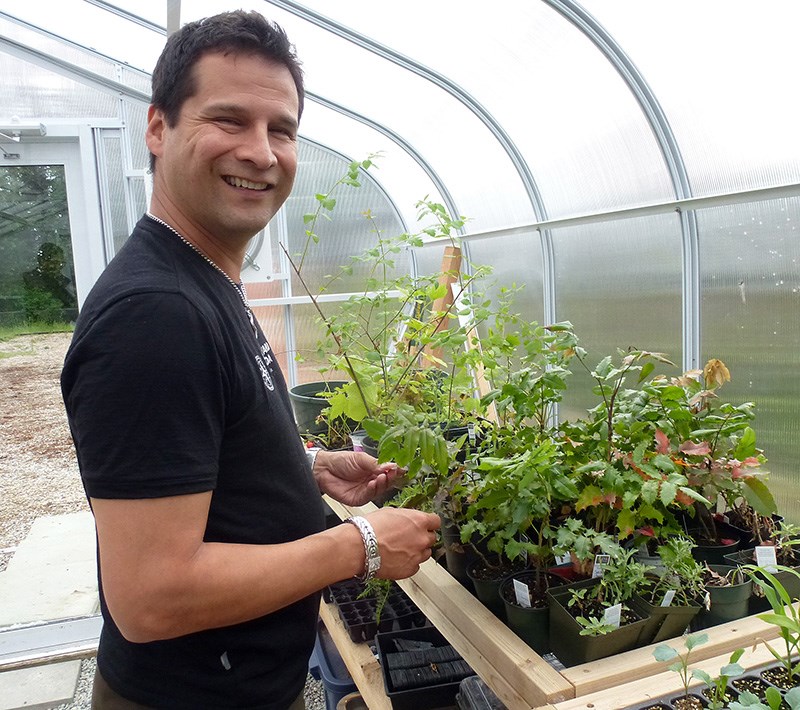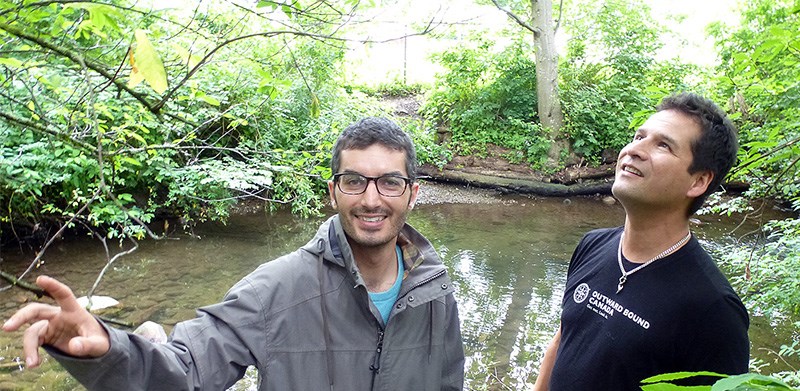A partnership between School District 43’s Suwa’lkh School and a non-profit that teaches young people how to grow healthy food could help revitalize a local creek and expand a horticultural program at the school.
Fresh Roots has already worked with three Vancouver high schools to grow produce and is starting another community farm in Delta. But the program at Suwa’lkh will be the first to specialize in growing native plants with First Nations students who will harvest the crops for medicine or for food.
Executive director Mark Schutzbank and Malcolm Key, the aboriginal youth program coordinator at Suwa’lkh, say they want to use organic and permaculture strategies to grow plants in a way that mimics nature. And they see the project as a way to introduce urban aboriginal youth to nature and their cultural practices.
“It’s such a great opportunity for using this space. The kids are going to be hands on and immersed,” Key told The Tri-City News, adding, “No matter how deep they are in the city, they [will learn] they still have the Earth beneath their feet.”
The Coquitlam school property is perfect for such a vision because it sits next to Como Creek and a small forested area, and includes a school field. There is also a greenhouse purchased with grants and installed with the help of Suwa’lkh students while raised beds, already filled to the brim with rhubarb and other crops, supply the school lunch program with healthy veggies.

But the plan for the Suwa’lkh horticultural program is much broader than growing vegetables. Thanks to the school’s partnership with Fresh Roots and the Galiano Conservancy, the goal is to improve plant diversity in the forest while also creating an edible forest garden. Salmonberry, thimble berry, salal and Oregon grape will replace invasive blackberry and ivy among the trees while decaying logs will be used to provide nutrients for the plants and store rain water, building resiliency in the face of climate change.
EDIBLE FOREST
Similar techniques are being used to create an edible forest on Galiano Island and Fresh Roots’ Schutzbank said these type of gardens more closely resemble nature while fitting in with First Nations traditions, including the Coast Salish culture of the area.
“This project honours traditional indigenous management practices and the pressing need for healthy, local food,” Schutzbank told The Tri-City News, adding that students, staff, community stakeholders and elders will be involved in the planning process.
A passionate urban food farmer himself, Schutzbank is looking forward to introducing a new crop of students to the joys of food production in harmony with nature. He notes that the skills they will pick up are also part of the new provincial curriculum.
“It’s going to be a learning forest not just for Suwa’lkh but other schools as well,” he said, noting that students will also benefit from being outside in nature because being close to the Earth is known to reduce anxiety and stress.
Eventually, the goal is to turn the space into an aboriginal community hub for the Tri-Cities centred around food.
Key said one of the ways of connecting the school’s 72 high school students is through hands-on programs that bring them close to nature, such as a recent paddling trip through the Broken Islands. And food is a draw for everyone. Last year, children in the aboriginal summer program enjoyed kale chips, with produce picked from the school garden.
“Some enjoyed it while, for some [others], it was a new taste on a developing palate,” he said.
This fall, however, students will get a close look at a forest garden and learn about ecological stewardship when they visit the Galiano Conservancy, and Key is excited about the opportunity for a similar project here.
If all goes as planned, students will have salmonberries to go with their kale chips, and a greater understanding of the role they play in nature’s food web.
• To learn more about this project or to help, visit www.freshroots.ca.



